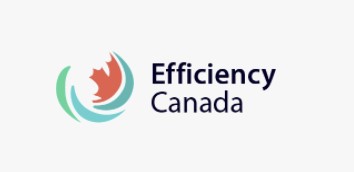Housed in Carleton’s Sustainable Energy Research Centre, Efficiency Canada aims to bring together a diverse array of allies – from academic researchers and private-sector businesses to utilities and governments – to advocate for public policies that move us toward a more energy-efficient future. Efficiency Canada is the national voice for an energy efficient economy. We envision a future where Canada uses energy efficiency to its fullest potential. This means maximizing the benefits of energy efficiency resulting in a sustainable environment, a productive economy, and a just and equitable society.
Efficiency Canada has ties to both Carleton’s Faculty of Engineering and Design and the Faculty of Public Affairs (FPA).
“Carleton researchers are doing groundbreaking research on energy efficiency in numerous areas, including policy, regulations, engineering and business. Efficiency Canada will be right at home in this diverse research community focused on fostering sound public policy.”
Carleton President Benoit-Antoine Bacon

Finance Minister the Honourable Bill Morneau and Carleton President Benoit-Antoine Bacon at the launch of Efficiency Canada.
Shared Goals
What is our desired long-term impact?
Towards our vision for Canada to be using energy efficiency to its fullest potential, we seek to have impact in three critical areas:
- ZERO-CARBON BUILDINGS AND FACILITIES
Why is this important?
-
- Fifteen percent of Canada’s emissions come from the built environment
- The comfort and safety of our buildings and facilities affect our ability to live, work and play
- Contributes to improvement in indoor air quality, home comfort and safety and increased productivity for business, institutions and industry.
- A NET-ZERO PRODUCTIVE ECONOMY
Why is this important?
-
- Energy efficiency can be a new area for productive investment and innovation that improves Canadian well-being and competitiveness
- Energy efficiency is one of Canada’s clean technology exports and can attract new industries to Canada
- Reducing and re-shaping energy demands increases the impact of other zero-carbon solutions (such as renewables)
- MEANINGFUL CAREERS
Why is this important?
-
- Stable, skilled, purposeful jobs will improve the economic, social and environmental health of local communities
- Implementation of energy efficiency programs must be matched with policy ambition
- Creates a positive feedback loop: more workers equals support for strong policies which equals more work, which in turn creates demand for better policies etc.

“The efficient use of energy and the policy framework that encourages increased efficiency are critical components of the research agendas of a number of colleagues here in the Faculty of Public Affairs and right across Carleton. This is important work.”
André Plourde, Dean of the Faculty of Public Affairs
Key Facts
- The energy efficiency sector employed 436,000 workers across six key industries in 2018 – that is about 2.3 per cent of all jobs in Canada. For comparative purposes, 204,000 people are employed in mining, quarrying and oil and gas extraction, and 123,000 are employed in telecommunications.
- Across six key industries, 51,000 Canadian businesses generated an estimated $82.6 billion in energy efficiency operating revenues.
- All direct and permanent energy-efficiency workers generated an estimated $14.9 billion in employment income.
- The majority of employers (52 per cent) expect their energy-efficiency revenues to increase over the next 12 months. Forty-one per cent expect revenues to remain the same or do not know, and only 7 per cent expect a decrease.

ARISE Building


